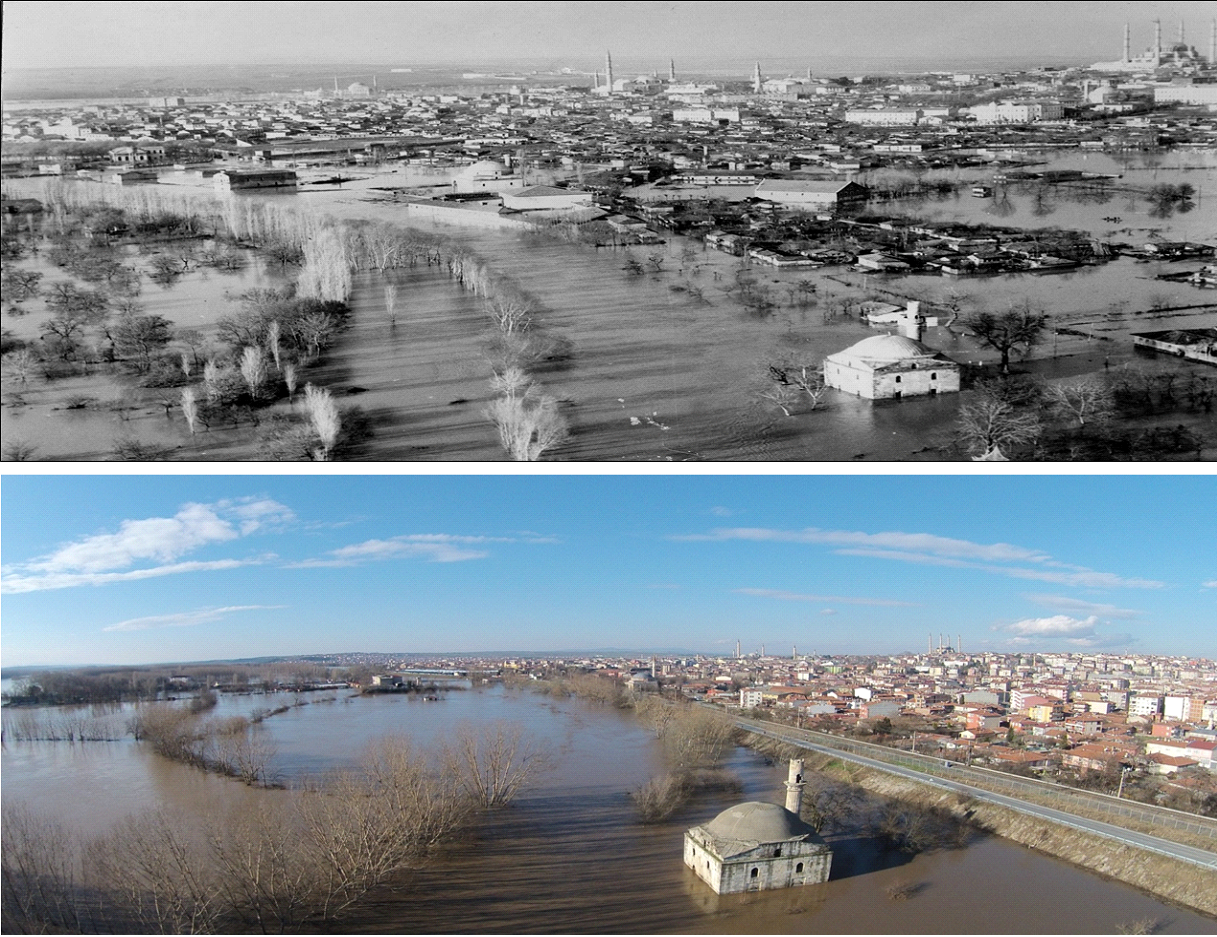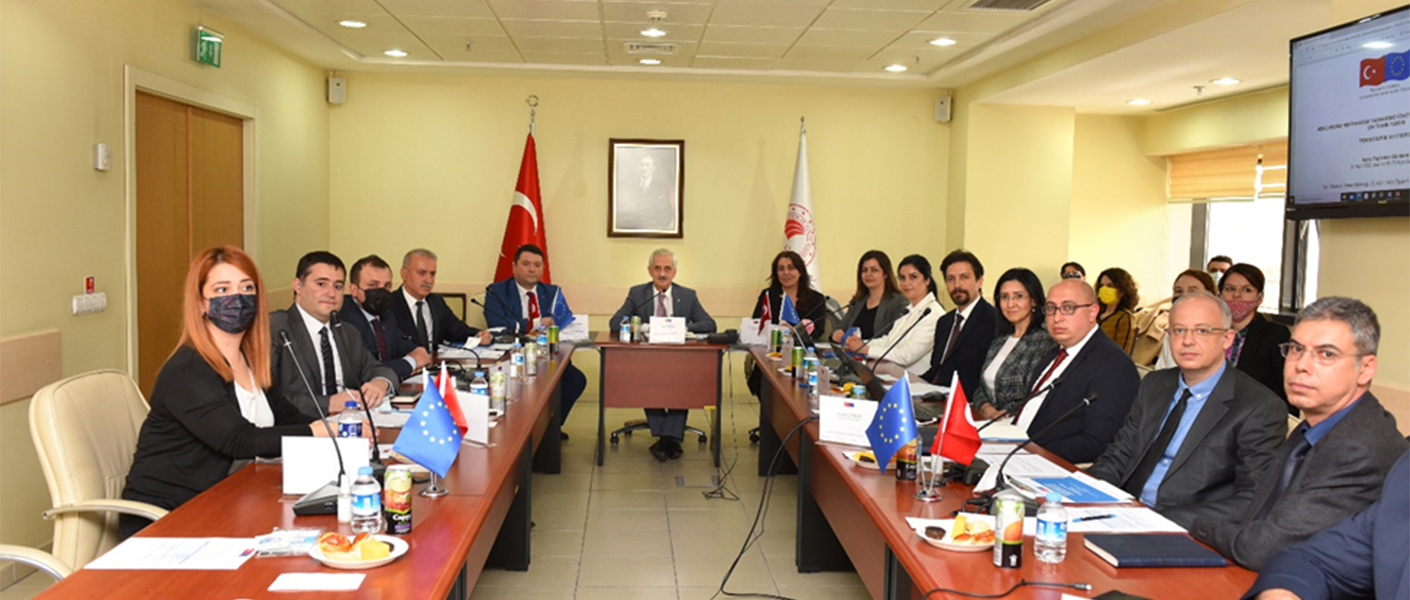Flood Issues In The Basin
Flooding is very common and a devastating disaster all over the world as well as Türkiye. Türkiye, especially urban areas, face increasing flood risks due to urbanization and the climate change impacts on water resources which lead irregularities in flow regime. Of all the natural hazards in Türkiye, flooding is the most common, and accounts for the second largest number of casualties and highest economic damage.
Extreme flow rate problems have been witnessed in the Lower Meriç-Ergene River Basin. The city centre of Edirne, located in Türkiye close to the border, is vulnerable to flooding. Further, the frequency and severity of floods have been increased in the basin area. Besides the floods, every year channel capacity is dramatically decreasing due to low flows. Ascending and descending extreme flow rate problems and their impacts have occurred regularly during the last two decades. Although floods of the Meriç River influence these three riparian states, Türkiye has been most affected given its downstream position in this basin.

Partly because traditional flood control has essentially been problem driven, the effect of interventions on other areas in the river basin (upstream or downstream) or on other components of the water system (land use, drinking water services, ecological services) have largely been neglected. Since the sections of the river in Türkiye are relatively short, Türkiye does not have sufficient time to issue a warning and to take relevant measures. Therefore, Türkiye is directly dependent on Bulgaria for accurate and timely information to take measures against the floods, for flood estimation and to issue flood warning. In order to manage flood risk in this transboundary basin, cooperation of three countries is needed.

This website was created and maintained with financial support of the European Union and the Republic of Türkiye. Its contents are the sole responsibility of the consortium led by DAI. It does not necessarily reflect the views of the Republic of Türkiye and the European Union.

